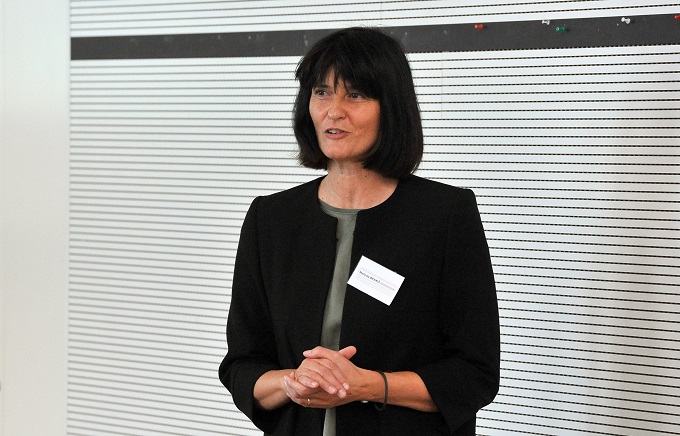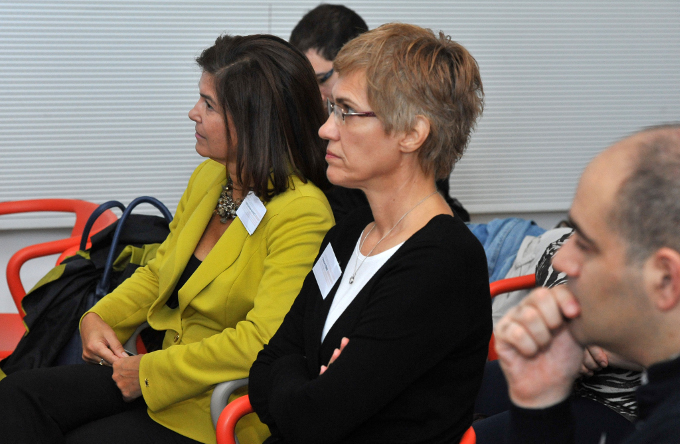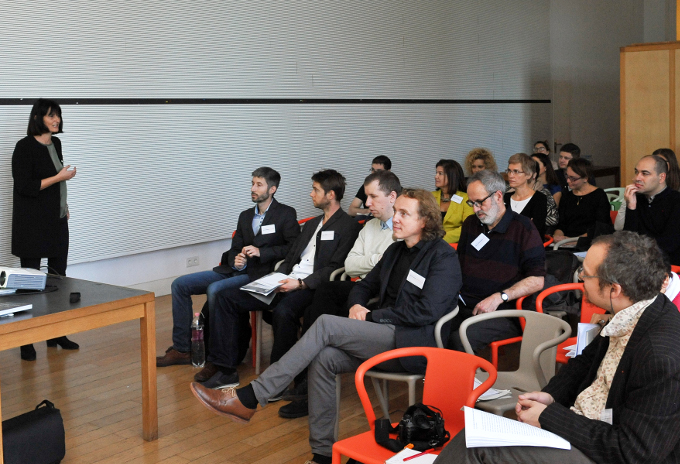News feed
“Knowledge obtained here should be integrated into the practice”
2017. 10. 25.BME hosts doctoral conference for architects specialising in urban planning for the second time.
“It is while conducting their independent doctoral research that architects realise that their profession lacks the decades-long research traditions, international networks and methodology tools that, for example, geographers, sociologists or engineers have,” said Melinda Benkő, habilitated associate professor, head of the Department of Urban Planning and Design at the Faculty of Architecture at the Budapest University of Technology and Economics (BME) and main organizer of the DOCONF conference titled “Facing Post-War Urban Heritage in Central and Eastern Europe 2017” in response to bme.hu’s question. She added that at the beginning of the 21st century, the same doctoral degree and PhD requirements were introduced internationally for architects as for practitioners of the previously mentioned professions. “Urban planning and design is a multidisciplinary science therefore the solutions are obviously shared. However, a doctoral research is an independent project which is why it is important for us to explore how you can approach the issues of cities and urban planning as an architect and how you can conduct research in this field and how different this is from the urban development approaches of other disciplines.”

Melinda Benkő said that apart from aiming to find the special disciplinary features, the conference specifically focuses on connecting Central European universities offering architecture, landscape architecture and urban planning programmes and building a scientific network of doctoral researchers. Speakers at the conference will include PhD students, doctoral candidates and postdoctoral researchers, who obtained their PhD in the last 5 years, in the fields of architecture, landscape architecture and urban planning while the tutors of BME’s Department of Urban Planning and Design together with senior instructors and PhD supervisors in the area of urban design from universities of technology in Bratislava, Prague, Krakow and Belgrade will be involved as session moderators. The partner organisation of the conference is Docomomo International which specialises in modern architecture with the chair of its specialist committee for urbanism+landscape, Miles Glendinning being a regular guest at the event.

The conference focuses on the analysis of the contemporary challenges of post-war urban and landscape-scale modern heritage and on the identification of the range of potential interventions. The presentations primarily represent the problems of urban planning and design faced by former socialist countries with the thematically arranged sessions of the programme offering the option to compare the case studies with one another.
The 32 presentations are divided into three blocs with six successive sessions. The researchers will discuss the theory of mass housing projects and present case studies. They will describe the phenomena connected to modern heritage in the use of urban space and the transforming of urban landscape as well as the connections between cities on the Danube and cultural heritage. The latter bloc is partly related to DANUrB, the international interregional research project of the Department of Urban Planning and Design.

“Over half of the projects received in response to our invitation last year concentrate on mass housing neighbourhoods although it was only one of the many topics proposed,” Ms. Benkő remembers. “Mass housing projects, mass housing neighbourhoods and their management – not on a building level but at the scale of districts with integrated planning – is a professional field that seems to attract the interest of many in Eastern Europe. It is a central issue within the department as well with their research materials growing into a kind of a national database.
As for the number of participants, the event’s main organizer proudly announced that twice as many people had applied – half of whom have been offered the chance to give a presentation after a pre-selection process – for this year’s DOCONF than for the conference two years ago. “What we most importantly want with this event is to offer a platform for network building which promotes long term scientific and academic collaborations. DOCONF is connected to other international activities of the Department of Urban Planning and Design as well (e.g. Erasmus, Visegrad4, DANUrB) allowing the academic, research and tendering areas to promote one another.

“Unfortunately, Hungary has few PhD students conducting research in architecture, landscape architecture or urban planning reflected partly by the rate of only 8% of abstracts received from Hungarian schools offering doctoral programmes. We would like the Hungarian research community producing internationally relevant research results to grow. I strongly believe that young, talented architects may be interested not only in the practical side of urban planning but also in its scientific aspects. It is important that this knowledge is integrated into the practice of urban development and planning and that urban planning and design become some kind of a real and responsible multidisciplinary platform for technical, social, natural, human and art areas connected to urban research and development. Besides the Department of Urban Planning and Design, the conference is funded by the Future Fund of the Faculty of Architecture and the National Cultural Fund of Hungary. The whole team of our department was involved in the organisation of the conference and I thank them for always being of great assistance in these adventures.”
HA - GI
Photo: János Philip
